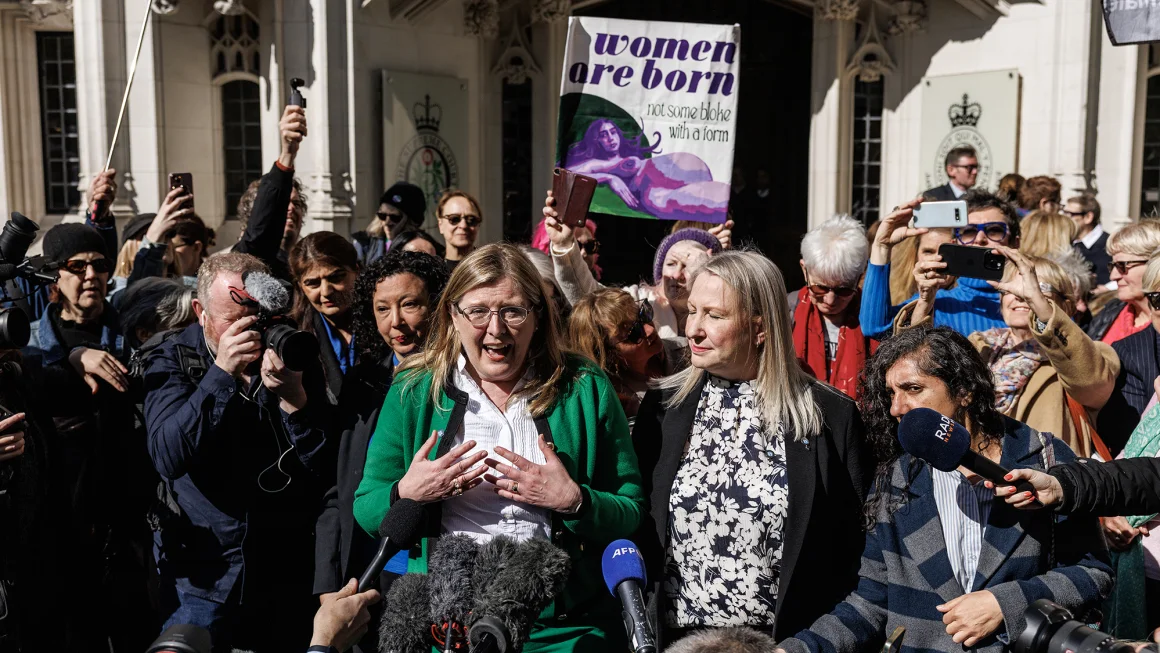"Only those female at birth are biological women, those who transitioned are not to be considered women" — UK Supreme Court
In a landmark ruling, the United Kingdom’s Supreme Court has declared that under the country’s equality law, the term “woman” refers strictly to biological women — meaning transgender women are no longer to be considered women under this definition.
"Only those female at birth are biological women, those who transitioned are not to be considered women" — UK Supreme Court
"Only those female at birth are biological women, those who transitioned are not to be considered women" — UK Supreme Court
London, April 20, 2025:
In a landmark ruling, the United Kingdom’s Supreme Court has declared that under the country’s equality law, the term “woman” refers strictly to biological women — meaning transgender women are no longer to be considered women under this definition. This ruling is set to significantly affect access to single-sex spaces such as women-only bathrooms, hospital wards, sports, and other female-designated facilities.
The ruling interprets the word “woman” within the framework of the Equality Act 2010, making it clear that trans women will no longer be protected under the legal category of “woman,” although they will still be protected from discrimination based on gender reassignment.
Guidelines to follow soon
The Equality and Human Rights Commission (EHRC) has stated it will soon release new guidelines regarding single-sex spaces.
EHRC Chair Kishwer Falkner said:
“This ruling is highly significant and makes it clear that single-sex services must be based on biological sex.”
She added that third-gender or unisex facilities could be created for the transgender community.
Changes in NHS Policy
The National Health Service (NHS) currently accommodates trans individuals based on their clothing, names, and pronouns. However, this policy is likely to be reconsidered in light of the court’s ruling.
Implications for policing and prisons
British Transport Police has announced that all body searches in custody will now be conducted based on a person’s biological sex at birth.
Impact on women’s sports
Experts believe the ruling could limit the participation of trans women in women’s sports. EHRC, echoing World Athletics, has supported excluding trans women from female sports competitions.
💬 Trans rights backlash
Director of TransActual UK, Jane Fae, stated:
“This ruling has effectively erased us from society. It marks a terrible regression in the history of human rights in the UK.”
Activists argue that the Gender Recognition Act 2004 has now become practically meaningless. While trans women could previously obtain legal recognition as female, the Supreme Court ruling limits its relevance, especially in day-to-day applications.
The biological sex debate
The ruling defined a biological woman as “someone who was female at birth.” However, it has raised concerns over how intersex individuals or trans women with female anatomy (e.g. breasts) will be accommodated.
Cultural and political divisions
The court’s rejection of the idea that trans women are women is expected to fuel ongoing culture wars and increase polarization.
Author J.K. Rowling, who financially backed the case, welcomed the verdict on social media. Meanwhile, LGBTQ+ rights groups have described the ruling as a step backwardPolitical response
The government stated that “single-sex spaces will always be protected” and that the ruling provides clarity to service providers.
Labour Party leader Keir Starmer has yet to comment on the ruling, but analysts suggest he may now avoid the divisive debate by pointing to the court’s decision.
Conservative Party leader Kemi Badenoch said:
“The phrase ‘trans women are women’ was never factually correct, and now it isn’t legally correct either.”
She also called for a review of the Equality Act and Gender Recognition Act, arguing that these laws should prevent discrimination, not promote social engineering.
Protests planned
Multiple trans rights organizations and labor unions have called for a protest in London on Saturday, saying the ruling is the result of a widespread anti-trans campaign in recent years.
Summary:
The UK Supreme Court’s ruling marks a significant shift in how gender and sex are interpreted under law. While some hail it as a victory for biological sex-based protections, others fear it undermines trans rights and inclusion in society — sparking renewed debate in British politics, law, and public services.










